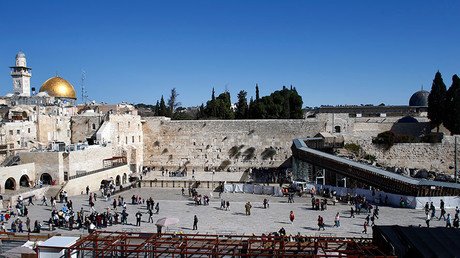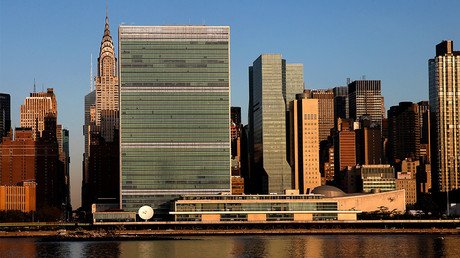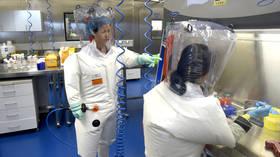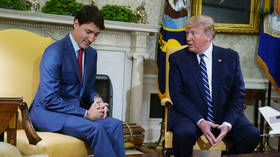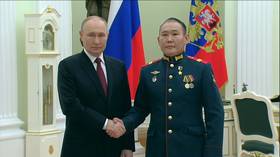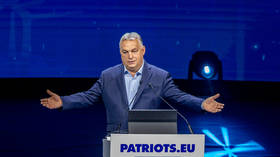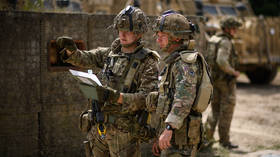70 nations gather in Paris to discuss two-state solution, Israel & Palestinian Authority skip
France is hosting an international conference aimed at strengthening a global commitment to a two-state solution for the Israeli-Palestinian conflict. Both principal parties are skipping the event, however.
Some 70 nations, including members of the Middle East Quartet (the US, Russia, the EU, and the UN), other permanent members of the UN Security Council (China, Britain, and France), and leading Arab and European nations are attending the all-day conference in the French capital. The event was called last year by France as an initiative to reinvigorate the peace process.
However, neither Israel nor the Palestinian Authority will be attending the conference, despite having been invited. Israeli Prime Minister Benjamin Netanyahu called the meeting “futile,” complaining that the Europeans and the Palestinians had “rigged” it against Israeli interests.
The Palestinian Authority’s president, Mahmoud Abbas, called Israel’s position regrettable. However, despite initial expectations, he didn’t arrive in Paris on Sunday either, with Reuters sources indicating that the decision to cancel his visit had come from the French government. Abbas will reportedly meet with French President Francois Hollande sometime later, possibly in a matter of weeks.
The conference is focusing on three key areas, including helping the Palestinian economy, strengthening its civil society, and assisting in building the future Palestinian state, according to the French Foreign Ministry. The ultimate goal is not to impose a solution on Israel or the PA, but rather help them to reengage in direct negotiations, Paris explained.
“There is no time to waste,” French Foreign Minister Jean-Marc Ayrault told delegates at the opening ceremony, adding “we are not sheltered from an explosion of violence.”
French President Francois Hollande later also warned that peace talks between Israel and Palestine should be revived for "the security of Israel, security of the entire region."
He said: "It is not a question of dictating to the parties,” referring to Netanyahu’s decision not to attend the conference.
"Only direct negotiations between Israelis and Palestinians can lead to peace. No one will do it in their place,” the French president said to the gathered diplomats. "The world cannot, should not resign itself to the status quo.” He also called on them to lend assistance to peace efforts by offering economic incentives to Israelis and Palestinians.
Meanwhile, US Secretary of State John Kerry called Netanyahu to reassure him that the results of the conference would not harm Israel’s interests. “Kerry called Netanyahu to tell him about the moves the US was taking at the conference to soften the wording of the Paris communiqué,” Reuters reports, citing a statement issued by the Israeli prime minister’s office.
Kerry told Netanyahu that the discussion at the meeting would lead to any consequences, “neither at the United Nations Security Council nor at the conference itself,” and stressed that "the US would oppose any proposal that may be put forward to the Security Council."
However, the Israeli prime minister received Kerry’s assurances without enthusiasm and said that “Israel had already suffered damage after the US did not veto a Security Council resolution (last month) and it should not be compounded.”
The conference comes at a moment of increased tensions in the Middle East. Israel was outraged when the US abstained from vetoing a UN Security Council resolution that calls for halting the construction of settlements in the occupied Palestinian territories. Consecutive right-wing governments under Netanyahu have brushed aside criticisms of the settlement building and continued to take more land from the Palestinians. The PA sees this practice as an obstacle to direct talks.
The passage of the resolution, and a subsequent speech that US Secretary of State John Kerry gave on his vision for a solution of the decades-old crisis, have underscored years of strained relations between Israel and the Obama administration.
President-elect Donald Trump, who is to be sworn in less than a week after the Paris conference, has indicated that his administration will be more supportive of Israeli interests. He has also indicated that he will move the US embassy in Israel from Tel Aviv to Jerusalem, practically enshrining it as an exclusively Israeli capital. The suggestion has been strongly rejected by the Palestinians.
The gathering in the French capital is seen by many as a message to Trump not to undermine the proposed two-state solution, which would see Jerusalem as the capital of both states.
A draft communique sent to media outlets ahead of the conference also calls on Israel and the PA to disavow officials in their governments who reject the two-state solution.
Interestingly, Britain, unlike other major European nations, has sent only a junior delegation to the event in an apparent attempt to preserve its special relations with the US under the Trump administration, the Guardian noted. The EU-departing nation is represented in Paris by Michael Howells, the head of the Middle East desk of the British Foreign Office, and two advisers to Edward Llewellyn, the UK’s ambassador to France.
